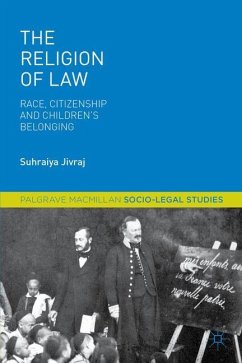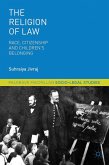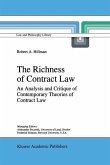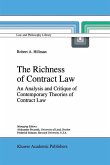How is religion, particularly non-Christianness, conceptualised and represented in English law? What is the relationship between religion, race, ethnicity and culture in these conceptualisations? What might be the socio-political effects of conceptualising religion in particular ways? This book addresses these key questions in two areas of law relating to children.
The first case study focuses on child welfare cases and reveals how the boundaries between race and theological notions of religion as belief and practice are blurred. Non-Christians are also often perceived as uncivilized but also, at times, racial otherness can be erased and assimilated. The second examines religion in education and the increasing focus on 'common values'. It demonstrates how non-Christian faith schools are deemed as in need of regulation, while Christian schools are the benchmark of good citizenship. In addition, values discourse and citizenship education provide a means to 'de-racialise'non-Christian children in the ongoing construction of the nation.
Central to this analysis is a focus on religion as a socio-political, contingent, fluid and invented concept.
The first case study focuses on child welfare cases and reveals how the boundaries between race and theological notions of religion as belief and practice are blurred. Non-Christians are also often perceived as uncivilized but also, at times, racial otherness can be erased and assimilated. The second examines religion in education and the increasing focus on 'common values'. It demonstrates how non-Christian faith schools are deemed as in need of regulation, while Christian schools are the benchmark of good citizenship. In addition, values discourse and citizenship education provide a means to 'de-racialise'non-Christian children in the ongoing construction of the nation.
Central to this analysis is a focus on religion as a socio-political, contingent, fluid and invented concept.
"The Religion of Law: Race, Citizenship and Children's Belonging, is a welcome addition to the overarching category of work which we might still describe loosely as law and religion but it is a book which has in its essence ideas of difference and distinction. ... this book is a detailed study of the many different ways in which religion might be constructed or conceptualized. ... Jivraj's book is rich and multilayered, weaving together many ideas and issues ... ." (Jane Mair, Feminist Legal Studies, Vol. 25, 2017)









